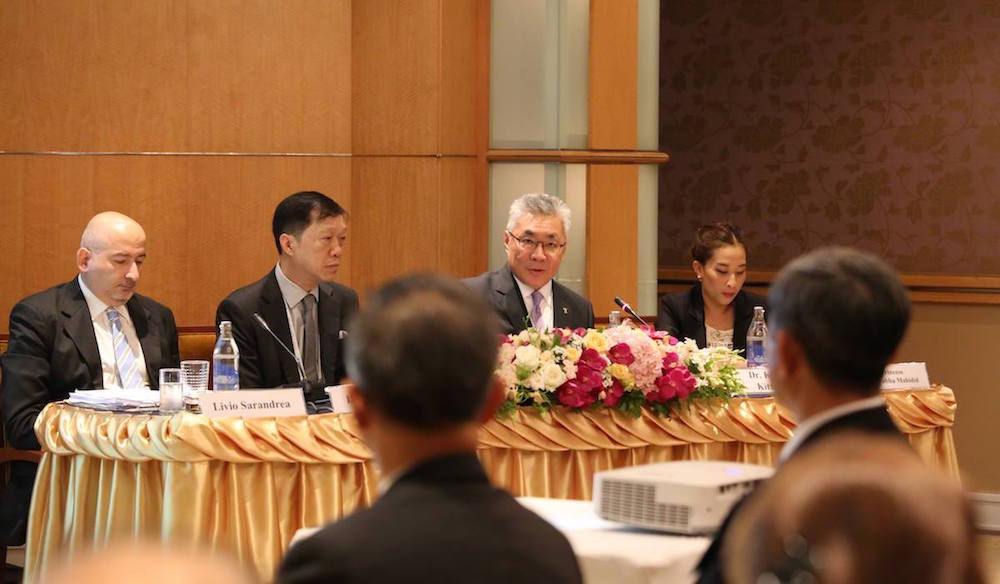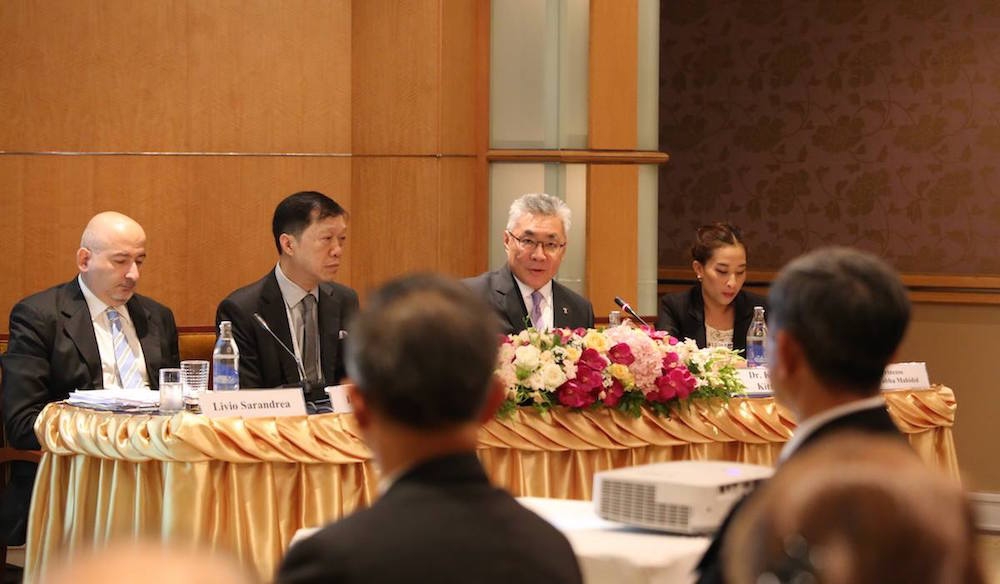International Conference on Alternative Development 2
18-24 November 2015
Myanmar, Chiang Rai, Chiang Mai,and Bangkok, Thailand

The TIJ hosted a side event on ‘Rule of Law and Alternative Development: Strengthening the Rule of Law to Achieve Sustainable Development in Areas of Illicit Crop Cultivation’ with UNODC at the International Conference on Alternative Development 2 (ICAD 2) on November 24th, 2015 at the Royal Orchid Sheraton in Bangkok. The side event discussed the linkages between the rule of law and
alternative development highlighting how the rule of law can be instrumental to the success of alternative development.
The event was moderated by Dr. Kittipong Kittayarak,Executive Director of the TIJ. Her Royal Highness Princess Bajrakitiyabha Mahidol provided a keynote speech to introduce alternative development as a development led approach to address the root cause of illicit drug crop cultivation of opium poppy, coca bush and cannabis and the linkages between the rule of law and alternative development. Mr. Leik Boonwaat, UNODC Representative to Iran then presented strengthening laws and institutions in Laos and highlighted how to empower women in opium producing areas to end their dependence on opium cultivation. Mr. Livio Sarandre, Programme Specialist on the Rule of Law from the UNDP Asia-Pacific Regional Center in Bangkok was the third speaker sharing his experience on the benefits of legal empowerment for poor and marginalized populations.
Thailand has been involved in promoting alternative development since the first International Conference on Alternative Development (ICAD). ICAD 1 was hosted in Chiang Rai and Chiang Mai in 2011 to draft the International Guiding Principles on Alternative Development (IGPs) which was subsequently endorsed at the high-level conference in Lima, Peru in 2012. The IGPs have since been adopted at the United Nations General Assembly in 2013 as the United Nations Guiding Principle on Alternative Development (UNGPs). The UNGPs is an important framework for the international community to use to address the illicit cultivation of opium poppy, coca bush, and cannabis.
In order to build better understanding and promote the UNGPs, The Royal Thai Government, the Government of the Federal Republic of Germany, the Government of the Republic of the Union of Myanmar, the United Nations Office on Drugs and Crime (UNODC) – in partnership with The Thai Office of the Narcotics Control Board (ONCB), the Mae Fah Luang Foundation under Royal Patronage (MFLF), the Thailand Institute of Justice (TIJ), and the Royal Thai Project Foundation,—organized the ‘International Conference on Alternative Development 2 (ICAD 2)’ from the 18 to 24 November 2015 where participants visited alternative development projects in Shan State, Myanmar and in Thailand’s Chiang Rai and Chiang Mai Provinces. The High-Level Conference was then hosted in Bangkok on the 23 to 24 November, 2014.
ICAD 2 brought together 258 policy makers, experts, practitioners, and members of civil society from 40 countries and 13 international organizations to discuss best practices and key recommendations on how the international community, member states and communities can improve the implementation of alternative development. Key outcomes from ICAD 2 include recognizing that alternative development and the recently adopted Sustainable Development Goals for the 2030 Sustainable Development Agenda are intrinsically linked and complementary and that alternative development needs to be mainstreamed into national development plans. The conference also acknowledged that the rule of law and alternative development are mutually reinforcing because it can enhance State’s presence, build trust at all levels of stakeholders, promote peace and a culture of lawfulness. Participants also recommended for improved monitoring and evaluation and to develop indicators to measure success and challenges in the implementation of alternative development programmes.
The report of the ICAD 2 will be presented to the 59th Commission on Narcotics Drugs at the United Nations at Vienna in March 2016. Key recommendations will also be provided as inputs to the discussions at the United Nations General Assembly Special Session on Drugs (UNGASS) to be held in April 2016 to set the new global agenda on drug policies.



